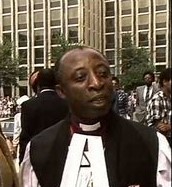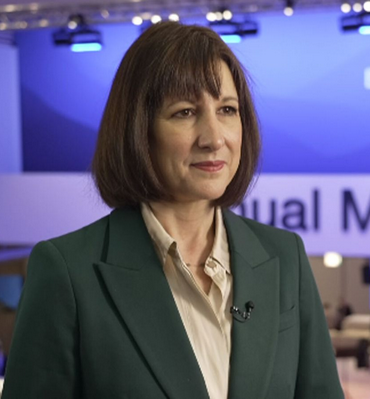Previously a curate, chaplain, vicar, rural dean, canon and archdeacon, Bishop Wilfred Wood - the first Black Bishop in the Church of England - was always noted as being a highly visual and outspoken voice on matters of racial discrimination and inequality.
In 2000, Queen Elizabeth II recognised his growing stance on the very issues that was a part of his everyday life by appointing the Barbados-born clergy as the Knight of St. Andrew for his outspoken views on issues of race in the United Kingdom and for working towards the improvement of the life of homeland.
Serving parishioners in Shepherd's Bush and Southwark in London, when he first arrived in the UK, he became Bishop of Croydon in 1985 – a historical moment of which he once recalled: “It was a big occasion all around.
“I was to become the first ever Black Bishop in the Church of England and people came from all over the world to witness it. At the service at St. Paul’s Cathedral there was not enough room, as.”
Born in St. Thomas, he became Deacon in 1962, before he was sent to the Diocese of London - first serving in St. Stephen’s Shepherd’s Bush, where he served as a curate, then honorary curate, of St Thomas With St Stephen, until 1974. And in 1977 he was appointed Rural Dean of East Lewisham and Honorary Canon of Southwark Cathedral.
He was Archdeacon of Southwark from 1982 until his consecration as Bishop of Croydon in 1985, where he oversaw the Croydon Episcopal Area and assisted the Bishop of Southwark. Bishop Wood was appointed the Bishop of London Officer in race relations, also serving on a number of other important boards, from 1978 to 1981.
Recalling his achievements to that point Bishop Woods said: “Becoming Bishop of Croydon, in 1985, was a big occasion because I was then becoming the first ever Black Bishop in the Church of England.
“At the service at St. Paul’s Cathedral there was not enough room, as people had come from all over the world were in attendance – and there are 49 bishops who took part in the service. It was a great day.”
Serving on the Archbishop Commission on urban priority areas Bishop Wood noted that a report on the findings were published and also recalled the setting up of the urban church fund. He also served as a Lay Magistrate from 1971 to 1982 and was the moderator of the World Council of Churches Programme to Combat Racism, known for its work on South African apartheid, acknowledging the importance of the work of commission as they supported the liberation movements against the racist apartheid regime in South Africa.
The Bishop holds honorary doctorates from the Open University, the University of the West Indies and the General Theological Seminary, New York, when he was described in the citation as “a wide and trusted defender of the rights of minorities”. In his last years as Bishop of Croydon, he protested at the honours given to Enoch Powell upon his death, and about the government and opposition’s attitudes to asylum seekers.
Before his retirement in 2002, Bishop Wilfred Wood also served on the Board of the UK’s Housing Corporation and was a founder-member of a number of housing associations and revealed that up to his retirement, he was either president or patron of 26 charitable organisations.
Today, in Plaistow, in East London, there is the Bishop Wilfred Wood Court, plus one street, one close and two housing projects bear his name. Sir Wilfred Wood retired as Bishop of Croydon in 2002 before returning to his native Barbados. In 2004, he was voted as second only to Mary Seacole on a list of the 100 Great Black Britons.











